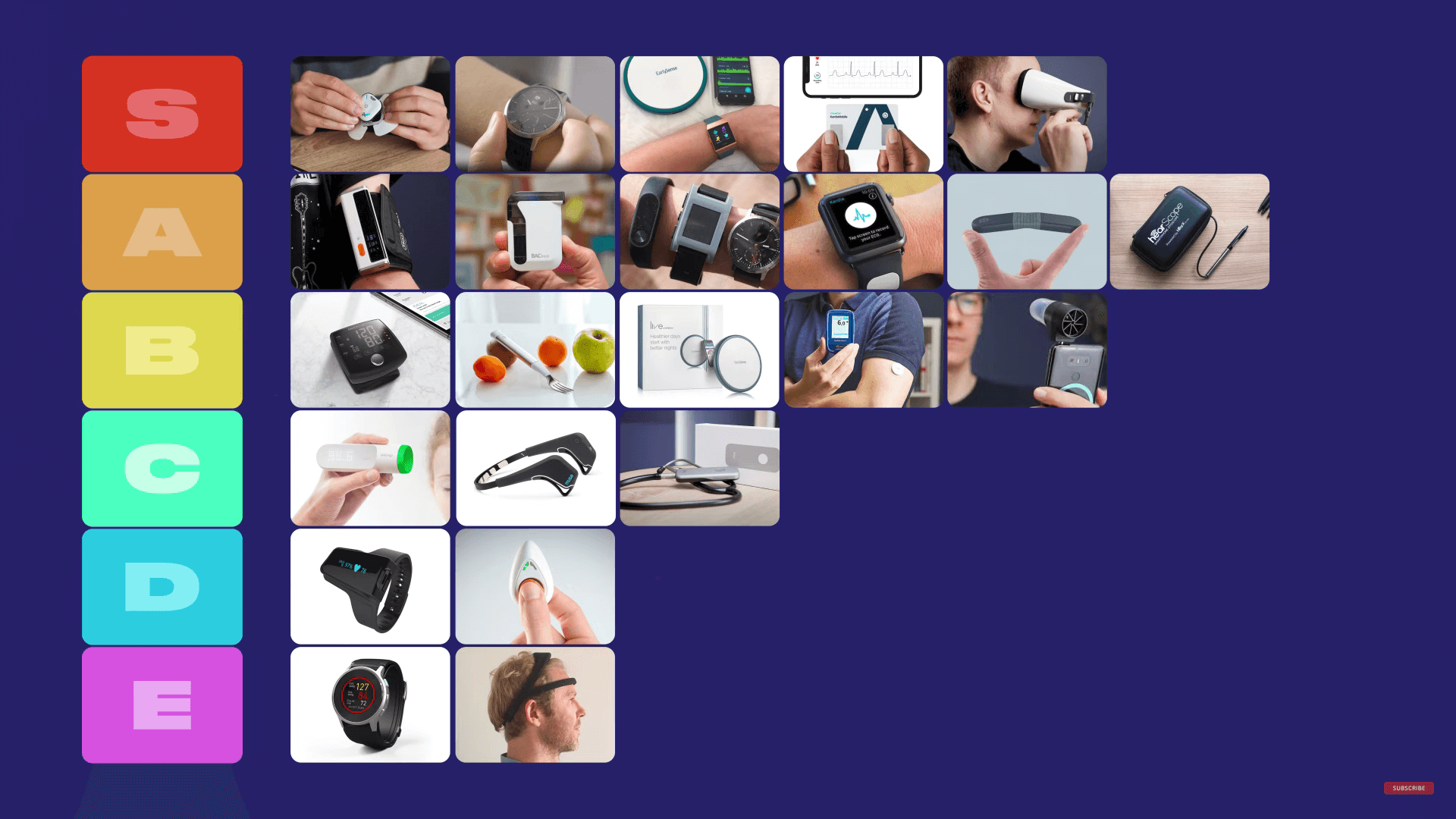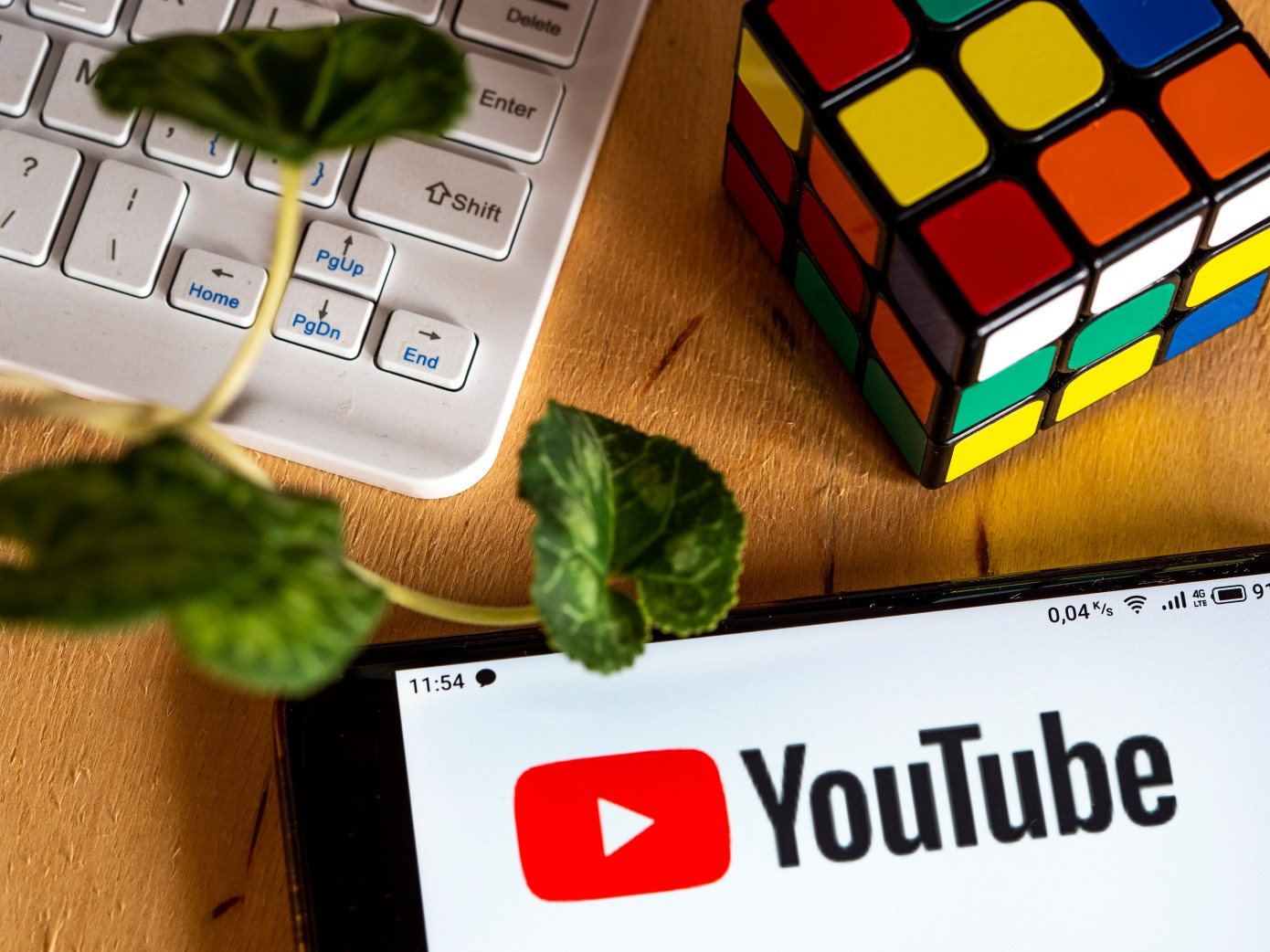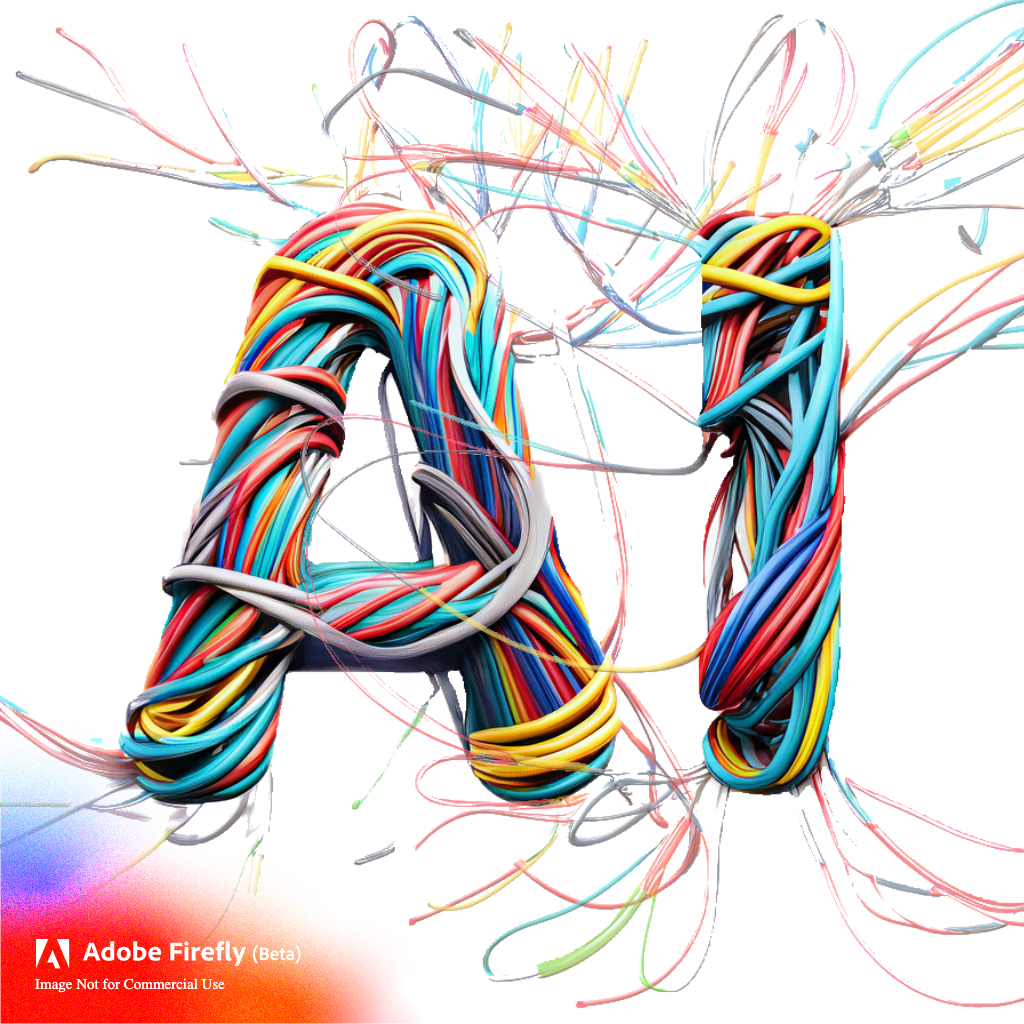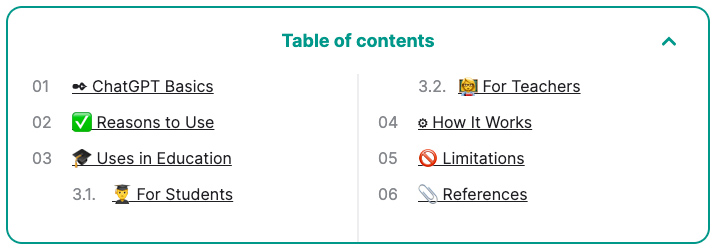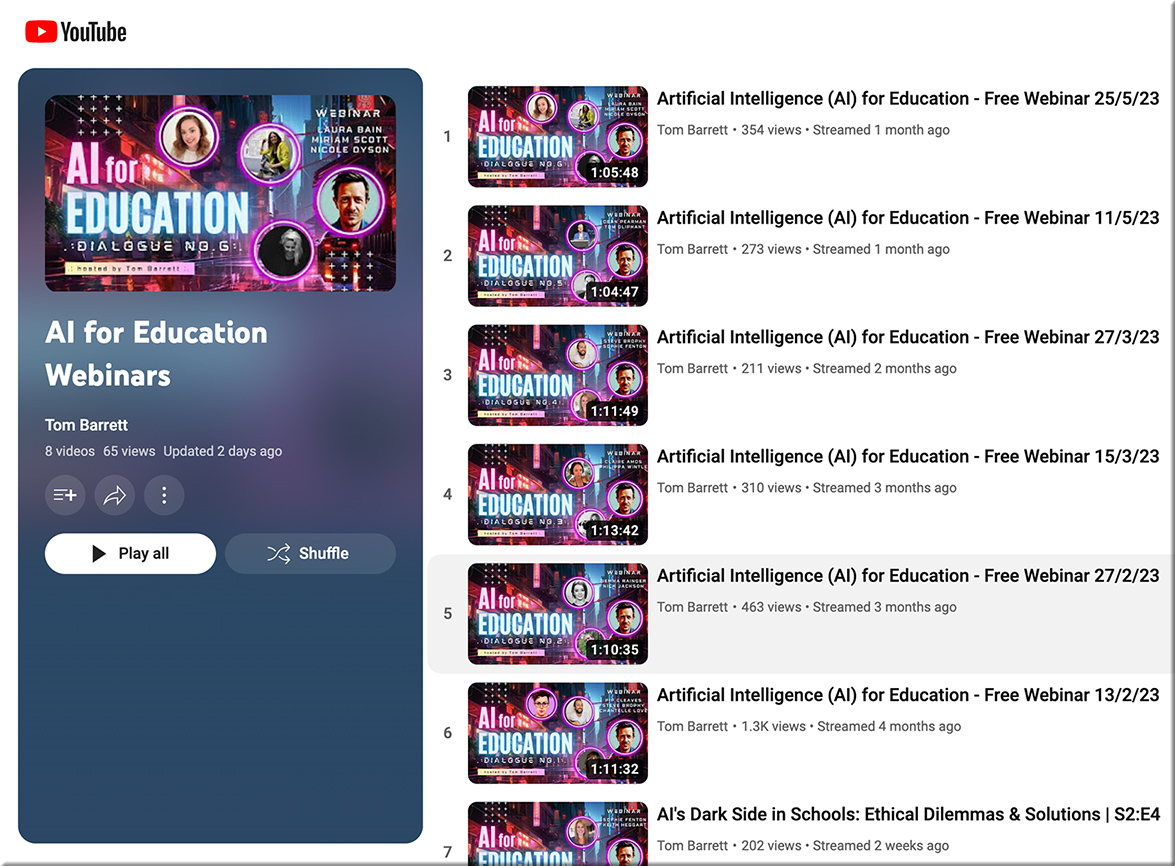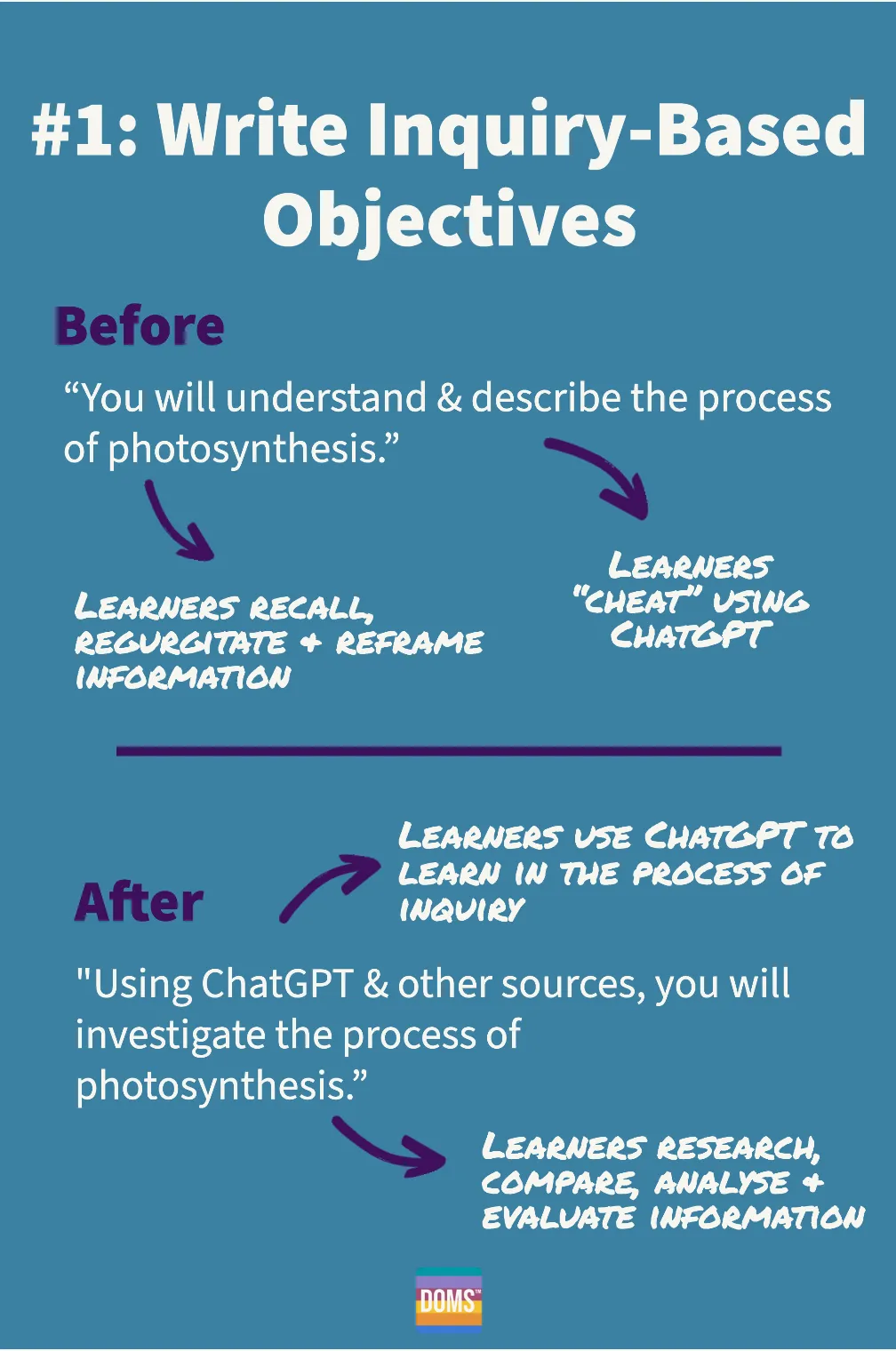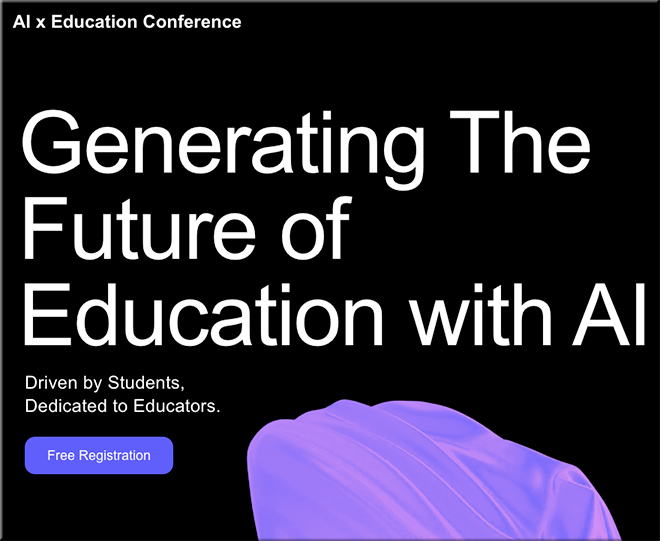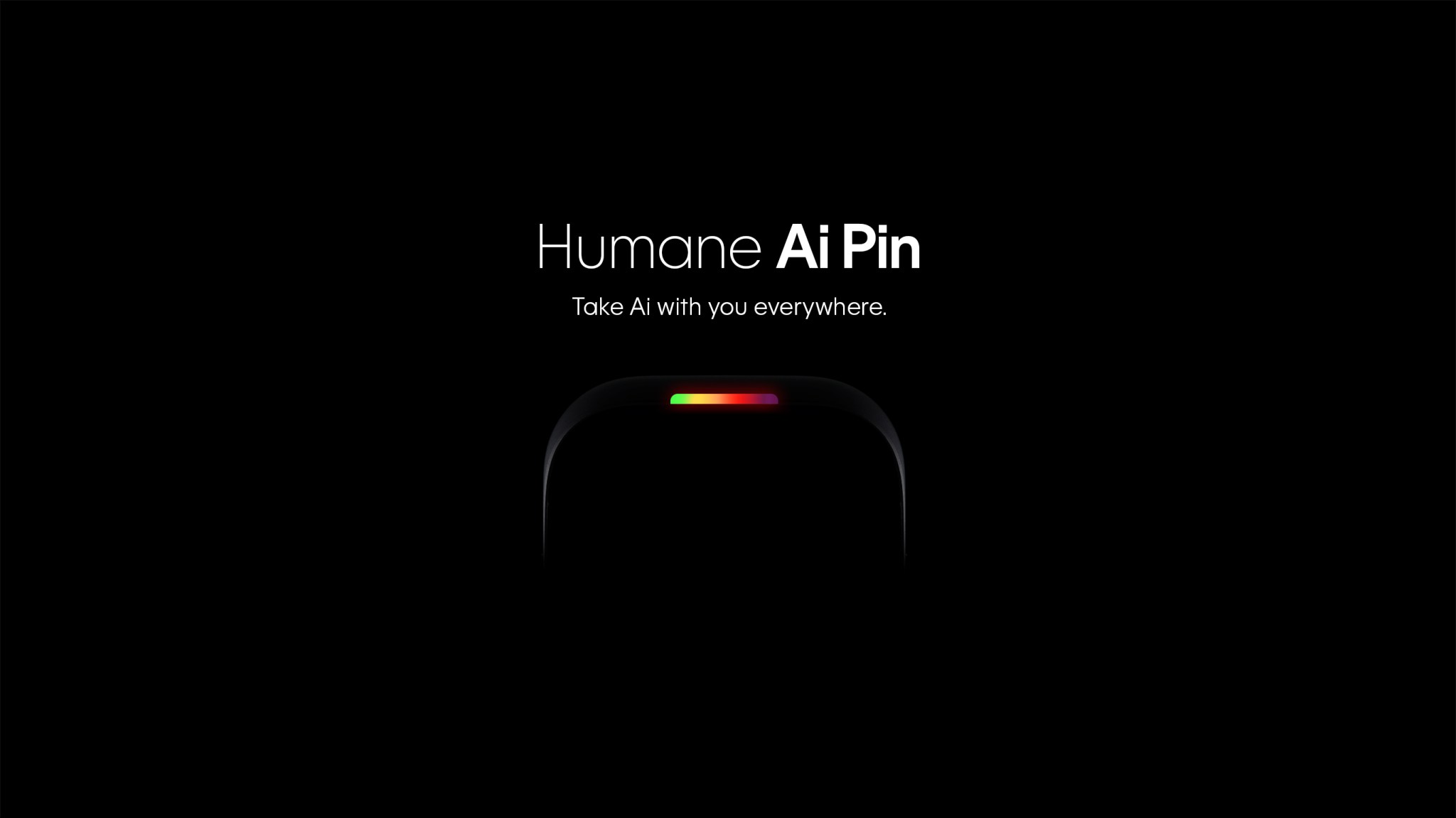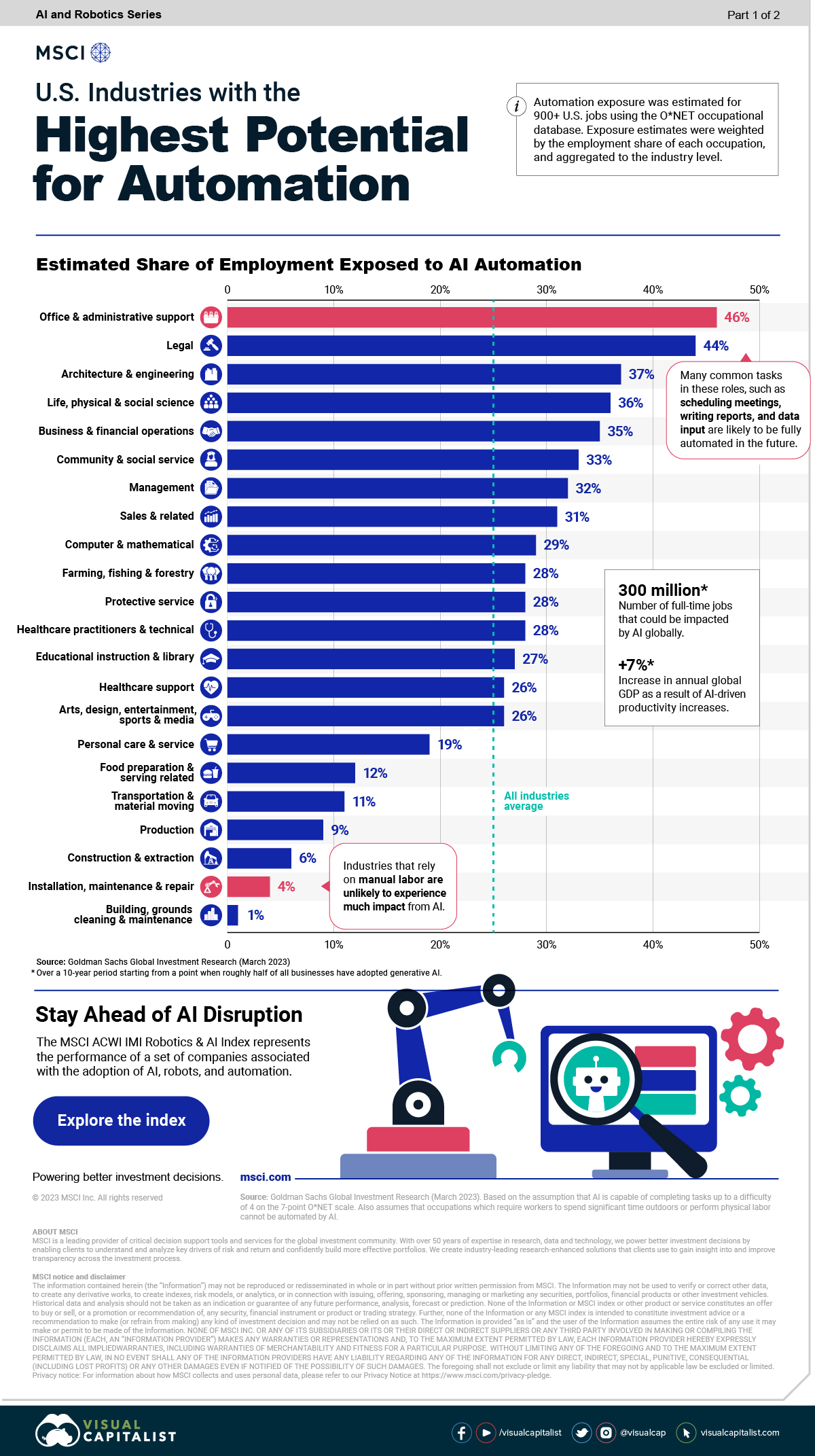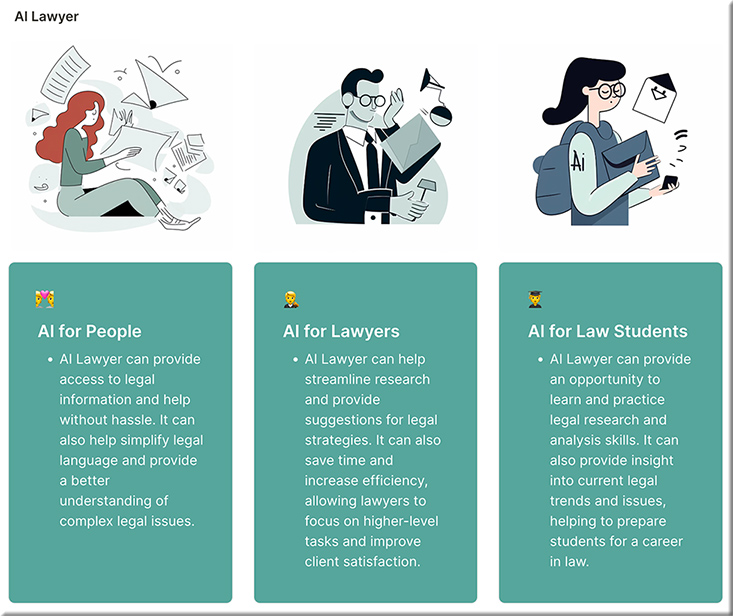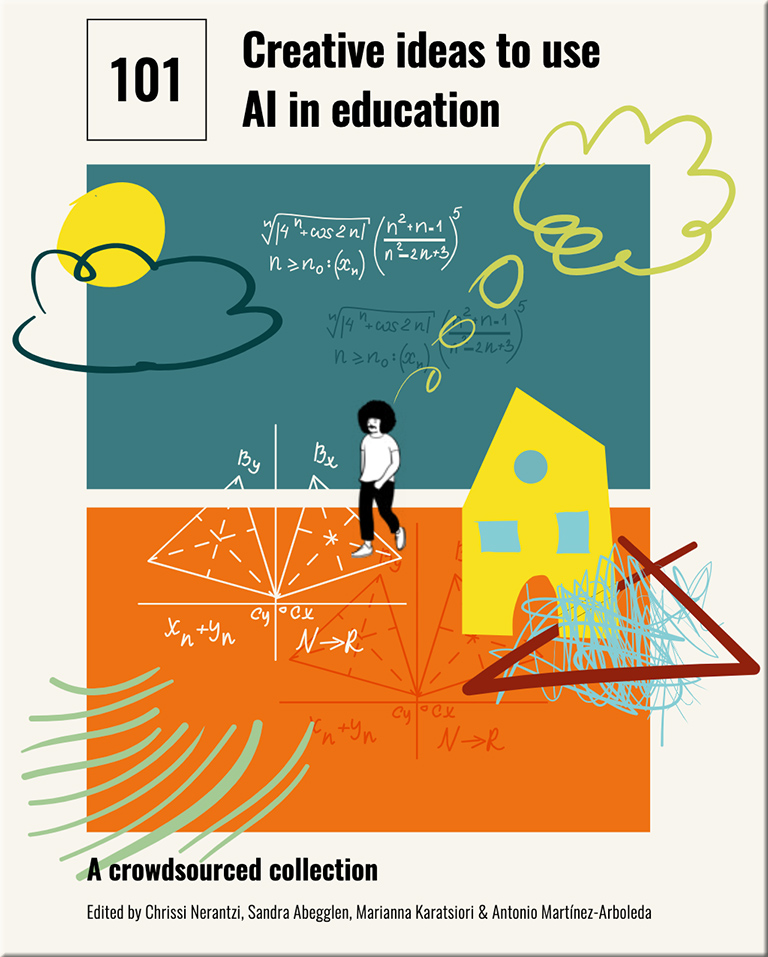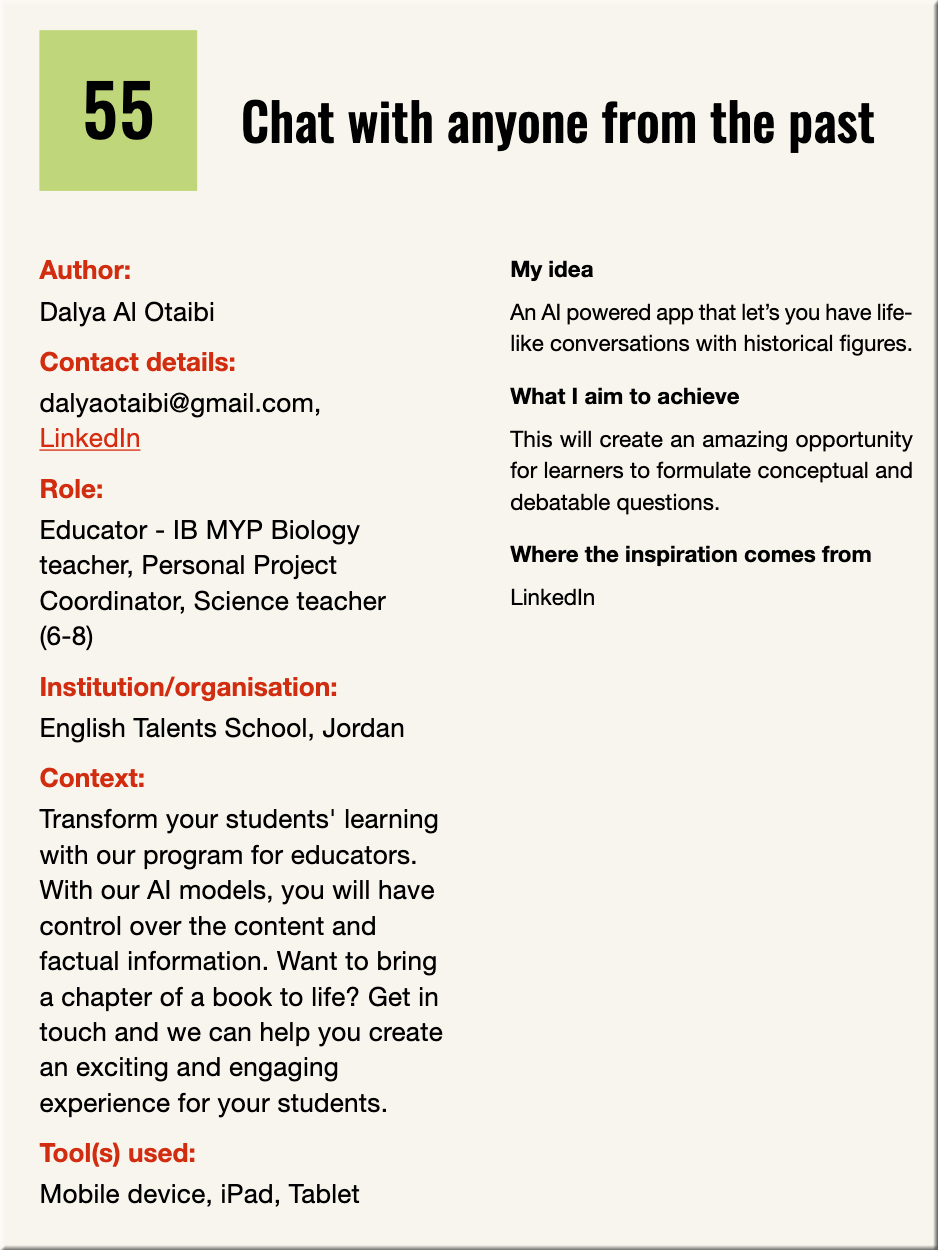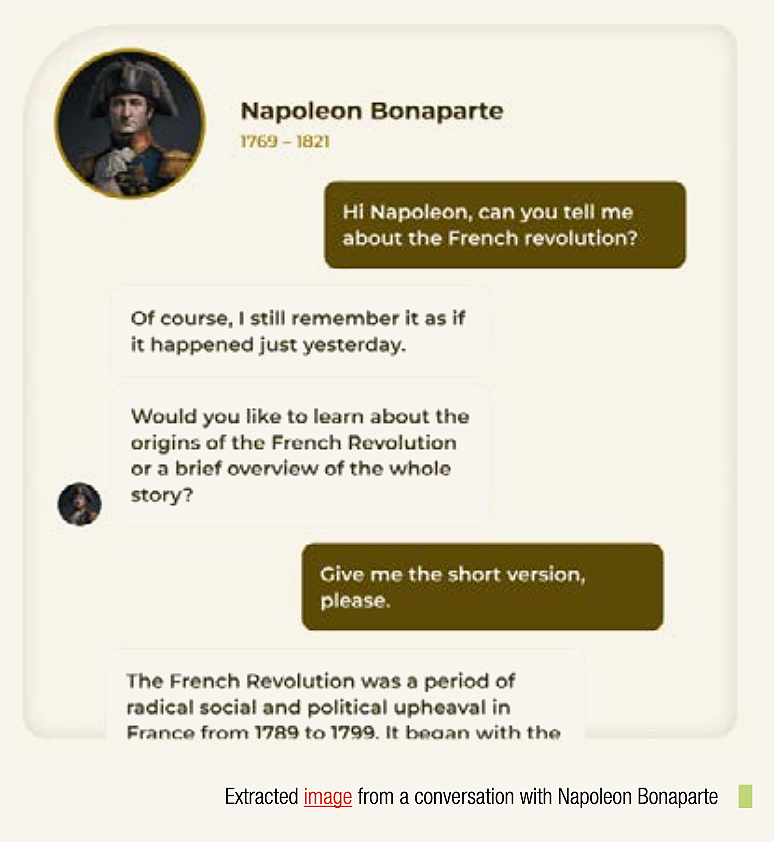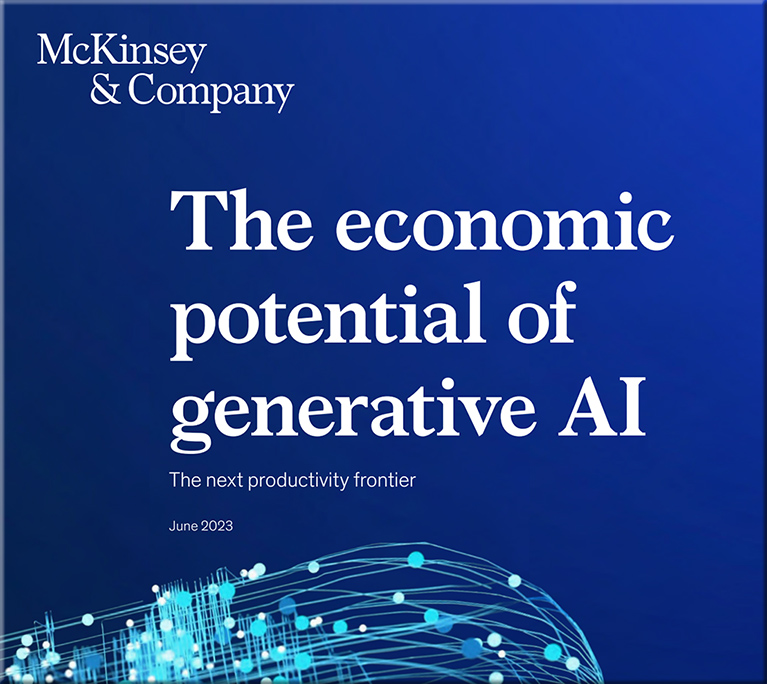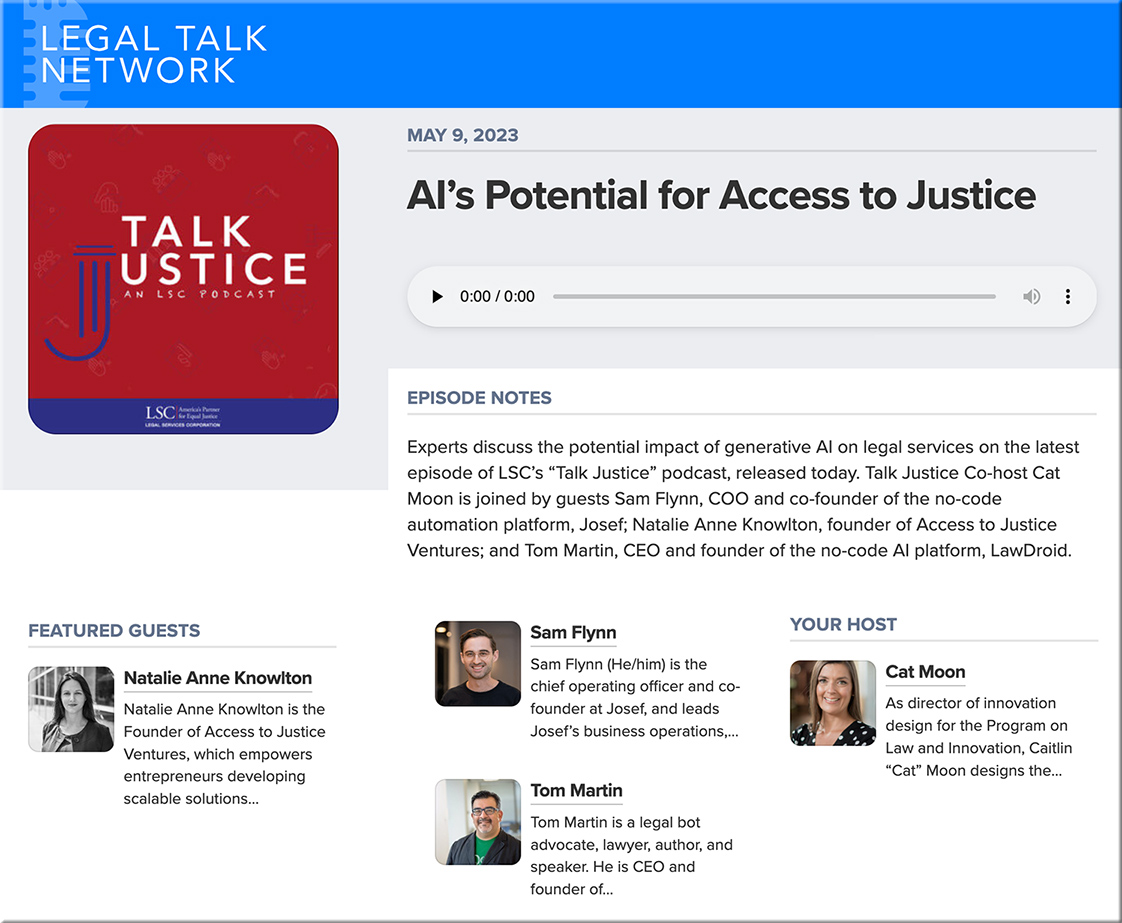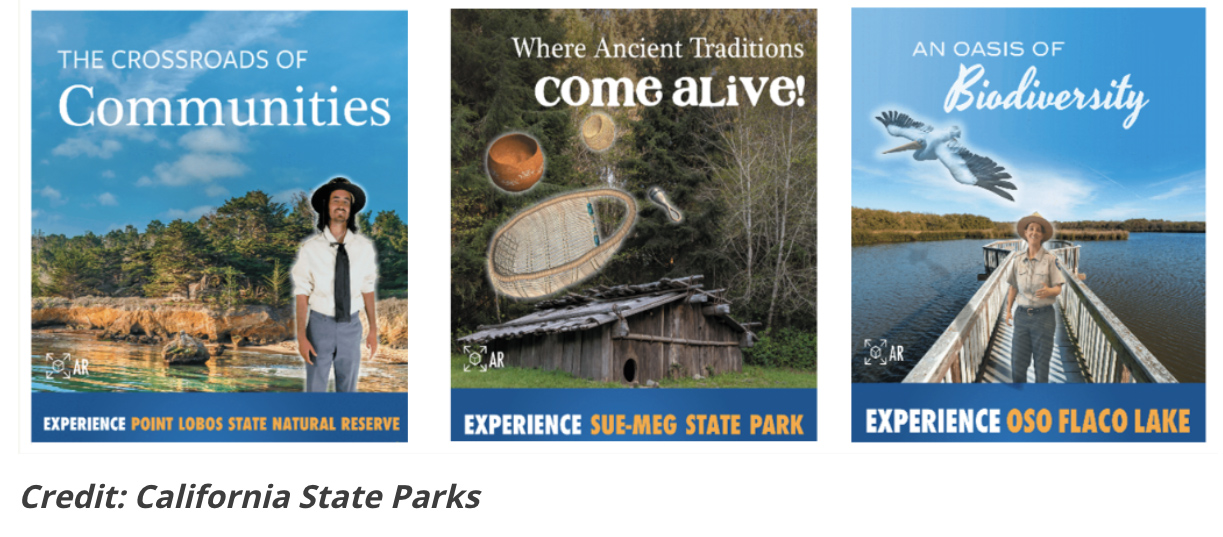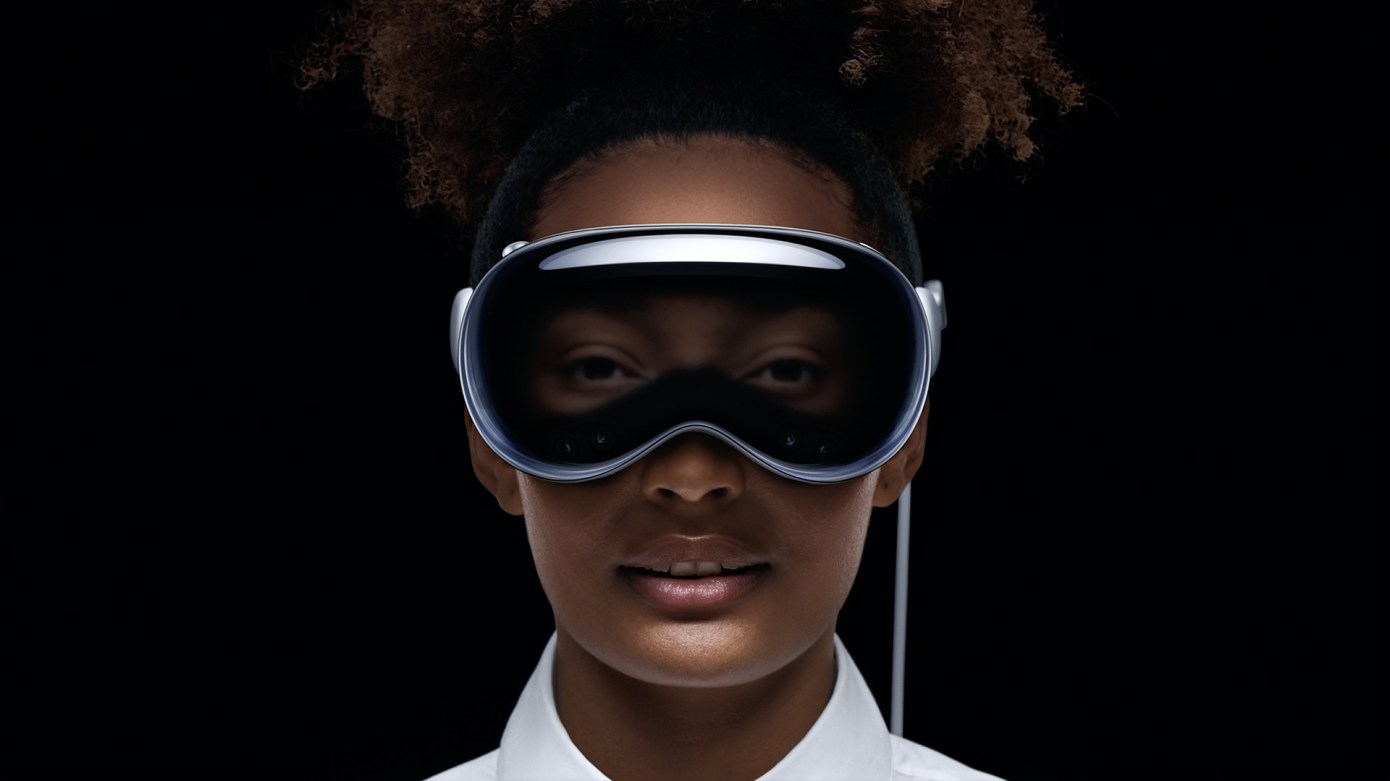The Ultimate Tier List Of Digital Health Technologies — from medicalfuturist.com by Andrea Koncz
Dr Mesko ranked 24 digital health technologies to create the ultimate tier list of digital health devices
YouTube tests AI-generated quizzes on educational videos — from techcrunch.com by Lauren Forristal
YouTube is experimenting with AI-generated quizzes on its mobile app for iOS and Android devices, which are designed to help viewers learn more about a subject featured in an educational video. The feature will also help the video-sharing platform get a better understanding of how well each video covers a certain topic.
Incorporating AI in Teaching: Practical Examples for Busy Instructors — from danielstanford.substack.com by Daniel Stanford; with thanks to Derek Bruff on LinkedIn for the resource
Since January 2023, I’ve talked with hundreds of instructors at dozens of institutions about how they might incorporate AI into their teaching. Through these conversations, I’ve noticed a few common issues:
- Faculty and staff are overwhelmed and burned out. Even those on the cutting edge often feel they’re behind the curve.
- It’s hard to know where to begin.
- It can be difficult to find practical examples of AI use that are applicable across a variety of disciplines.
To help address these challenges, I’ve been working on a list of AI-infused learning activities that encourage experimentation in (relatively) small, manageable ways.
September 2023: The Secret Intelligent Beings on Campus — from stefanbauschard.substack.com by Stefan Bauschard
Many of your students this fall will be enhanced by artificial intelligence, even if they don’t look like actual cyborgs. Do you want all of them to be enhanced, or just the highest SES students?
How to report better on artificial intelligence — from cjr.org (Columbia Journalism Review) by Syash Kapoor, Hilke Schellmann, and Ari Sen
In the past few months we have been deluged with headlines about new AI tools and how much they are going to change society.
Some reporters have done amazing work holding the companies developing AI accountable, but many struggle to report on this new technology in a fair and accurate way.
We—an investigative reporter, a data journalist, and a computer scientist—have firsthand experience investigating AI. We’ve seen the tremendous potential these tools can have—but also their tremendous risks.
As their adoption grows, we believe that, soon enough, many reporters will encounter AI tools on their beat, so we wanted to put together a short guide to what we have learned.
.
DSC:
Something I created via Adobe Firefly (Beta version)
The 5 reasons L&D is going to embrace ChatGPT — from chieflearningoffice.com by Josh Bersin
Does this mean it will do away with the L&D job? Not at all — these tools give you superhuman powers to find content faster, put it in front of employees in a more useful way and more creatively craft character simulations, assessments, learning in the flow of work and more.
And it’s about time. We really haven’t had a massive innovation in L&D since the early days of the learning experience platform market, so we may be entering the most exciting era in a long time.
Let me give you the five most significant use cases I see. And more will come.
AI and Tech with Scenarios: ID Links 7/11/23 — from christytuckerlearning.com by Christy Tucker
As I read online, I bookmark resources I find interesting and useful. I share these links periodically here on my blog. This post includes links on using tech with scenarios: AI, xAPI, and VR. I’ll also share some other AI tools and links on usability, resume tips for teachers, visual language, and a scenario sample.
It’s only a matter of time before A.I. chatbots are teaching in primary schools — from cnbc.com by Mikaela Cohen
Key Points
- Microsoft co-founder Bill Gates saying generative AI chatbots can teach kids to read in 18 months rather than years.
- Artificial intelligence is beginning to prove that it can accelerate the impact teachers have on students and help solve a stubborn teacher shortage.
- Chatbots backed by large language models can help students, from primary education to certification programs, self-guide through voluminous materials and tailor their education to specific learning styles [preferences].
The Rise of AI: New Rules for Super T Professionals and Next Steps for EdLeaders — from gettingsmart.com by Tom Vander Ark
Key Points
- The rise of artificial intelligence, especially generative AI, boosts productivity in content creation–text, code, images and increasingly video.
- Here are six preliminary conclusions about the nature of work and learning.
The Future Of Education: Embracing AI For Student Success — from forbes.com by Dr. Michael Horowitz
Unfortunately, too often attention is focused on the problems of AI—that it allows students to cheat and can undermine the value of what teachers bring to the learning equation. This viewpoint ignores the immense possibilities that AI can bring to education and across every industry.
The fact is that students have already embraced this new technology, which is neither a new story nor a surprising one in education. Leaders should accept this and understand that people, not robots, must ultimately create the path forward. It is only by deploying resources, training and policies at every level of our institutions that we can begin to realize the vast potential of what AI can offer.
AI Tools in Education: Doing Less While Learning More — from campustechnology.com by Mary Grush
A Q&A with Mark Frydenberg
Why Students & Teachers Should Get Excited about ChatGPT — from ivypanda.com with thanks to Ruth Kinloch for this resource
Excerpt re: Uses of ChatGPT for Teachers
- Diverse assignments.
- Individualized approach.
- Interesting classes.
- Debates.
- Critical thinking.
- Grammar and vocabulary.
- Homework review.
SAIL: State of Research: AI & Education — from buttondown.email by George Siemens
Information re: current AI and Learning Labs, education updates, and technology
Why ethical AI requires a future-ready and inclusive education system — from weforum.org
A specter is haunting higher education — from aiandacademia.substack.com by Bryan Alexander
Fall semester after the generative AI revolution
In this post I’d like to explore that apocalyptic model. For reasons of space, I’ll leave off analyzing student cheating motivations or questioning the entire edifice of grade-based assessment. I’ll save potential solutions for another post.
Let’s dive into the practical aspects of teaching to see why Mollick and Bogost foresee such a dire semester ahead.
Items re: Code Interpreter
Code Interpreter becoming available for all ChatGPT Plus users over the next week. Really amazing for any data science use case: https://t.co/hpel8xKyEg pic.twitter.com/Fd3SnPvVmT
— Greg Brockman (@gdb) July 6, 2023
I put together an initial prompt to set up Code Interpreter to create useful data visualizations. It gives it some basic principles of good chart design & also reminds it that it can output many kinds of files.
It is a first draft, feel free to improve: https://t.co/m4yAdKROiJ pic.twitter.com/r5A7PznqSC
— Ethan Mollick (@emollick) July 10, 2023
- What AI can do with a toolbox… Getting started with Code Interpreter — from oneusefulthing.org by Ethan Mollick
Democratizing data analysis with AI
Code Interpreter continues OpenAI’s long tradition of giving terrible names to things, because it might be most useful for those who do not code at all. It essentially allows the most advanced AI available, GPT-4, to upload and download information, and to write and execute programs for you in a persistent workspace. That allows the AI to do all sorts of things it couldn’t do before, and be useful in ways that were impossible with ChatGPT.
.
BREAKING: Code Interpreter is FINALLY rolling out to all ChatGPT Plus users.
It’s the most powerful feature OpenAI has released since GPT-4. It makes everyone a data analyst.
Here are 15 mind-blowing use cases of Code Interpreter: pic.twitter.com/qX0txynENS
— Aakash Gupta ? Product Growth Guy (@aakashg0) July 7, 2023
Legal items
- 2 authors say OpenAI ‘ingested’ their books to train ChatGPT. Now they’re suing, and a ‘wave’ of similar court cases may follow. — from businessinsider.com by Gabriel Rivera
- Authors Are Suing OpenAI & Meta For Copyright Infringement — from theneurondaily.com by Noah Edelman
MISC items
- America’s first law regulating AI bias in hiring takes effect this week — from downes.ca by Stephen Downes
- Eric Schmidt: This is how AI will transform the way science gets done — from technologyreview.com by Eric Schmidt
Science is about to become much more exciting—and that will affect us all, argues Google’s former CEO. - Microsoft unveils first professional certificate for generative AI skills — from zdnet.com/ by Lance Whitney
With the new AI Skills Initiative, people can take free online training via LinkedIn to learn concepts of AI good toward a Career Essentials certificate. - What is Claude 2? How to access this ChatGPT competitor. — from mashable.com by Cecily Mauran
It’s a decent alternative, and it’s easy to use. - Claude 2 — from anthropic.com
AI for Education Webinars — from youtube.com by Tom Barrett and others
Post-AI Assessment Design — from drphilippahardman.substack.com by Dr. Philippa Hardman
A simple, three-step guide on how to design assessments in a post-AI world
Excerpt:
Step 1: Write Inquiry-Based Objectives
Inquiry-based objectives focus not just on the acquisition of knowledge but also on the development of skills and behaviours, like critical thinking, problem-solving, collaboration and research skills.
They do this by requiring learners not just to recall or “describe back” concepts that are delivered via text, lecture or video. Instead, inquiry-based objectives require learners to construct their own understanding through the process of investigation, analysis and questioning.
.
Massive Disruption Now: What AI Means for Students, Educators, Administrators and Accreditation Boards
— from stefanbauschard.substack.com by Stefan Bauschard; via Will Richardson on LinkedIn
The choices many colleges and universities make regarding AI over the next 9 months will determine if they survive. The same may be true for schools.
Excerpts:
Just for a minute, consider how education would change if the following were true –
- AIs “hallucinated” less than humans
- AIs could write in our own voices
- AIs could accurately do math
- AIs understood the unique academic (and eventually developmental) needs of each student and adapt instruction to that student
- AIs could teach anything any student wanted or need to know any time of day or night
- AIs could do this at a fraction of the cost of a human teacher or professor
Fall 2026 is three years away. Do you have a three year plan? Perhaps you should scrap it and write a new one (or at least realize that your current one cannot survive). If you run an academic institution in 2026 the same way you ran it in 2022, you might as well run it like you would have in 1920. If you run an academic institution in 2030 (or any year when AI surpasses human intelligence) the same way you ran it in 2022, you might as well run it like you would have in 1820. AIs will become more intelligent than us, perhaps in 10-20 years (LeCun), though there could be unanticipated breakthroughs that lower the time frame to a few years or less (Benjio); it’s just a question of when, not “if.”
On one creative use of AI — from aiandacademia.substack.com by Bryan Alexander
A new practice with pedagogical possibilities
Excerpt:
Look at those material items again. The voiceover? Written by an AI and turned into audio by software. The images? Created by human prompts in Midjourney. The music is, I think, human created. And the idea came from a discussion between a human and an AI?
…
How might this play out in a college or university class?
Imagine assignments which require students to craft such a video. Start from film, media studies, or computer science classes. Students work through a process:
Generative Textbooks — from opencontent.org by David Wiley
Excerpt (emphasis DSC):
I continue to try to imagine ways generative AI can impact teaching and learning, including learning materials like textbooks. Earlier this week I started wondering – what if, in the future, educators didn’t write textbooks at all? What if, instead, we only wrote structured collections of highly crafted prompts? Instead of reading a static textbook in a linear fashion, the learner would use the prompts to interact with a large language model. These prompts could help learners ask for things like:
- overviews and in-depth explanations of specific topics in a specific sequence,
- examples that the learner finds personally relevant and interesting,
- interactive practice – including open-ended exercises – with immediate, corrective feedback,
- the structure of the relationships between ideas and concepts,
- etc.
Also relevant/see:
.
Generating The Future of Education with AI — from aixeducation.com
Designed for K12 and Higher-Ed Educators & Administrators, this conference aims to provide a platform for educators, administrators, AI experts, students, parents, and EdTech leaders to discuss the impact of AI on education, address current challenges and potentials, share their perspectives and experiences, and explore innovative solutions. A special emphasis will be placed on including students’ voices in the conversation, highlighting their unique experiences and insights as the primary beneficiaries of these educational transformations.
How Teachers Are Using ChatGPT in Class — from edweek.org by Larry Ferlazzo
Excerpt:
The use of generative AI in K-12 settings is complex and still in its infancy. We need to consider how these tools can enhance student creativity, improve writing skills, and be transparent with students about how generative AI works so they can better understand its limitations. As with any new tech, our students will be exposed to it, and it is our task as educators to help them navigate this new territory as well-informed, curious explorers.
Japan emphasizes students’ comprehension of AI in new school guidelines — from japantimes.co.jp by Karin Kaneko; via The Rundown
Excerpt:
The education ministry has emphasized the need for students to understand artificial intelligence in new guidelines released Tuesday, setting out how generative AI can be integrated into schools and the precautions needed to address associated risks.
Students should comprehend the characteristics of AI, including its advantages and disadvantages, with the latter including personal information leakages and copyright infringement, before they use it, according to the guidelines. They explicitly state that passing off reports, essays or any other works produced by AI as one’s own is inappropriate.
AI’s Teachable Moment: How ChatGPT Is Transforming the Classroom — from cnet.com by Mark Serrels
Teachers and students are already harnessing the power of AI, with an eye toward the future.
Excerpt:
Thanks to the rapid development of artificial intelligence tools like Dall-E and ChatGPT, my brother-in-law has been wrestling with low-level anxiety: Is it a good idea to steer his son down this path when AI threatens to devalue the work of creatives? Will there be a job for someone with that skill set in 10 years? He’s unsure. But instead of burying his head in the sand, he’s doing what any tech-savvy parent would do: He’s teaching his son how to use AI.
In recent months the family has picked up subscriptions to AI services. Now, in addition to drawing and sculpting and making movies and video games, my nephew is creating the monsters of his dreams with Midjourney, a generative AI tool that uses language prompts to produce images.
The AI Dictionary for Educators — from blog.profjim.com
To bridge this knowledge gap, I decided to make a quick little dictionary of AI terms specifically tailored for educators worldwide. Initially created for my own benefit, I’ve reworked my own AI Dictionary for Educators and expanded it to help my fellow teachers embrace the advancements AI brings to education.
7 Strategies to Prepare Educators to Teach With AI — from edweek.org by Lauraine Langreo; NOTE: Behind paywall
Introducing Superalignment — from openai.com
We need scientific and technical breakthroughs to steer and control AI systems much smarter than us. To solve this problem within four years, we’re starting a new team, co-led by Ilya Sutskever and Jan Leike, and dedicating 20% of the compute we’ve secured to date to this effort. We’re looking for excellent ML researchers and engineers to join us.
Excerpts (emphasis DSC):
How do we ensure AI systems much smarter than humans follow human intent?
…
Currently, we don’t have a solution for steering or controlling a potentially superintelligent AI, and preventing it from going rogue. Our current techniques for aligning AI, such as reinforcement learning from human feedback, rely on humans’ ability to supervise AI. But humans won’t be able to reliably supervise AI systems much smarter than us, and so our current alignment techniques will not scale to superintelligence. We need new scientific and technical breakthroughs.
…
Our goal is to build a roughly human-level automated alignment researcher. We can then use vast amounts of compute to scale our efforts, and iteratively align superintelligence.
From DSC:
Hold up. We’ve been told for years that AI is at the toddler stage. But now assertions are being made that AI systems are smarter than humans — much smarter even. That said, then why is the goal of OpenAI to build a roughly human-level automated alignment researcher if humans aren’t that smart after all…? Which is it? I must be missing or misunderstanding something here…
OpenAI are jumping back on the alignment bandwagon with the brilliantly-named Superalignment Team. And you guessed it – they’re researching alignment of future superintelligent AIs. They reckon that AI can align other AI faster than humans can, and the plan is to build an AI that does just that. Head-spinning stuff…
Ben’s Bites
Plus…
Who else should be on this team? We certainly don’t want a team comprised of just technical people. How about including rabbis, pastors, priests, parents, teachers, professors, social workers, judges, legislators, and many others who can help represent other specialties, disciplines, and perspectives to protect society?
Authors file a lawsuit against OpenAI for unlawfully ‘ingesting’ their books — from theguardian.com by Ella Creamer; via Ben’s Bytes
Mona Awad and Paul Tremblay allege that their books, which are copyrighted, were ‘used to train’ ChatGPT because the chatbot generated ‘very accurate summaries’ of the works
.
How AI is Transforming Workplace Architecture and Design — from workdesign.com by Christian Lehmkuhl
London Futurists | Generative AI drug discovery breakthrough, with Alex Zhavoronkov — from londonfuturists.buzzsprout.com
Alex Zhavoronkov is our first guest to make a repeat appearance, having first joined us in episode 12, last November. We are delighted to welcome him back, because he is doing some of the most important work on the planet, and he has some important news.
In 2014, Alex founded Insilico Medicine, a drug discovery company which uses artificial intelligence to identify novel targets and novel molecules for pharmaceutical companies. Insilico now has drugs designed with AI in human clinical trials, and it is one of a number of companies that are demonstrating that developing drugs with AI can cut the time and money involved in the process by as much as 90%.
Watch This Space: New Field of Spatial Finance Uses AI to Estimate Risk, Monitor Assets, Analyze Claims — from blogs.nvidia.com
When making financial decisions, it’s important to look at the big picture — say, one taken from a drone, satellite or AI-powered sensor.
The emerging field of spatial finance harnesses AI insights from remote sensors and aerial imagery to help banks, insurers, investment firms and businesses analyze risks and opportunities, enable new services and products, measure the environmental impact of their holdings, and assess damage after a crisis.
Secretive hardware startup Humane’s first product is the Ai Pin — from techcrunch.com by Kyle Wiggers; via The Rundown AI
Excerpt:
Humane, the startup launched by ex-Apple design and engineering duo Imran Chaudhri and Bethany Bongiorno, today revealed details about its first product: The Humane Ai Pin.
…
Humane’s product, as it turns out, is a wearable gadget with a projected display and AI-powered features. Chaudhri gave a live demo of the device onstage during a TED Talk in April, but a press release issued today provides a few additional details.
He Spent $140 Billion on AI With Little to Show. Now He Is Trying Again. — from wsj.com by Eliot Brown; via Superhuman
Billionaire Masayoshi Son said he would make SoftBank ‘the investment company for the AI revolution,’ but he missed out on the most recent frenzy
“Stunning”—Midjourney update wows AI artists with camera-like feature — from arstechnica.com by Benj Edwards; via Sam DeBrule from Machine Learnings
Midjourney v5.2 features camera-like zoom control over framing, more realism.
What is AIaaS? Guide to Artificial Intelligence as a Service — from eweek.com by Shelby Hiter
Artificial intelligence as a service, AIaaS, is an outsourced AI service provided by cloud-based AI providers.
AIaaS Definition
When a company is interested in working with artificial intelligence but doesn’t have the in-house resources, budget, and/or expertise to build and manage its own AI technology, it’s time to invest in AIaaS.
Artificial intelligence as a service, or AIaaS, is an outsourced service model AI that cloud-based companies provide to other businesses, giving them access to different AI models, algorithms, and other resources directly through a cloud computing platform; this access is usually managed through an API or SDK connection.
The Rise of the AI Engineer — from latent.space
Boost ChatGPT with new plugins — from wondertools.substack.com by Jeremy Caplan
Wonder Tools | Six new ways to use AI
.
A series re: AI from Jeff Foster out at ProvideoCoalition.com
- AI Tools Part 1: Why We Need Them
- AI Tools Part 2: A Deeper Dive
- AI Tools Part 3: The Current State of Generative AI Tools
The AI upskilling imperative to build a future-ready workforce — from businessinsider.com
Excerpts:
Skill development has always been crucial, but recent technological advancements have raised the stakes. We are currently in the midst of the fourth industrial revolution, where automation and breakthroughs in artificial intelligence (AI) are revolutionising the workplace. In this era of quick change and short half-life of skills, upskilling shouldn’t be an afterthought. Instead, reskilling and upskilling have to evolve into requirements for effective professional development.
To understand the significance of upskilling for your career trajectory, it is important to recognise the ever-evolving nature of technology and the rapid pace of digital transformation. Business Insider India has been exploring how businesses and thought leaders are driving innovation by educating their staff on the technologies and skills that will shape the future.
Law Firms Are Recruiting More AI Experts as Clients Demand ‘More for Less’ — from bloomberg.com by Irina Anghel
Data scientists, software engineers among roles being sought | Legal services seen as vulnerable to ChatGPT-type software
Excerpt (emphasis DSC):
Chatbots, data scientists, software engineers. As clients demand more for less, law firms are hiring growing numbers of staff who’ve studied technology not tort law to try and stand out from their rivals.
Law firms are advertising for experts in artificial intelligence “more than ever before,” says Chris Tart-Roberts, head of the legal technology practice at Macfarlanes, describing a trend he says began about six months ago.
.
AI Will Threaten Law Firm Jobs, But Innovators Will Thrive — from law.com
Excerpts:
What You Need to Know
- Law firm leaders and consultants are unsure of how AI use will ultimately impact the legal workforce.
- Consults are advising law firms and attorneys alike to adapt to the use of generative AI, viewing this as an opportunity for attorneys to learn new skills and law firms to take a look at their business models.
Split between foreseeing job cuts and opportunities to introduce new skills and additional efficiencies into the office, firm leaders and consultants remain uncertain about the impact of artificial intelligence on the legal workforce.
However, one thing is certain: law firms and attorneys need to adapt and learn how to integrate this new technology in their business models, according to consultants.
AI Lawyer — A personal AI lawyer at your fingertips — from ailawyer.pro
From DSC:
I hope that we will see a lot more of this kind of thing!
I’m counting on it.
.
Revolutionize Your Legal Education with Law School AI — from law-school-ai.vercel.app
Your Ultimate Study Partner
Are you overwhelmed by countless cases, complex legal concepts, and endless readings? Law School AI is here to help. Our cutting-edge AI chatbot is designed to provide law students with an accessible, efficient, and engaging way to learn the law. Our chatbot simplifies complex legal topics, delivers personalized study guidance, and answers your questions in real-time – making your law school journey a whole lot easier.
Job title of the future: metaverse lawyer — from technologyreview.com by Amanda Smith
Madaline Zannes’s virtual offices come with breakout rooms, an art gallery… and a bar.
.
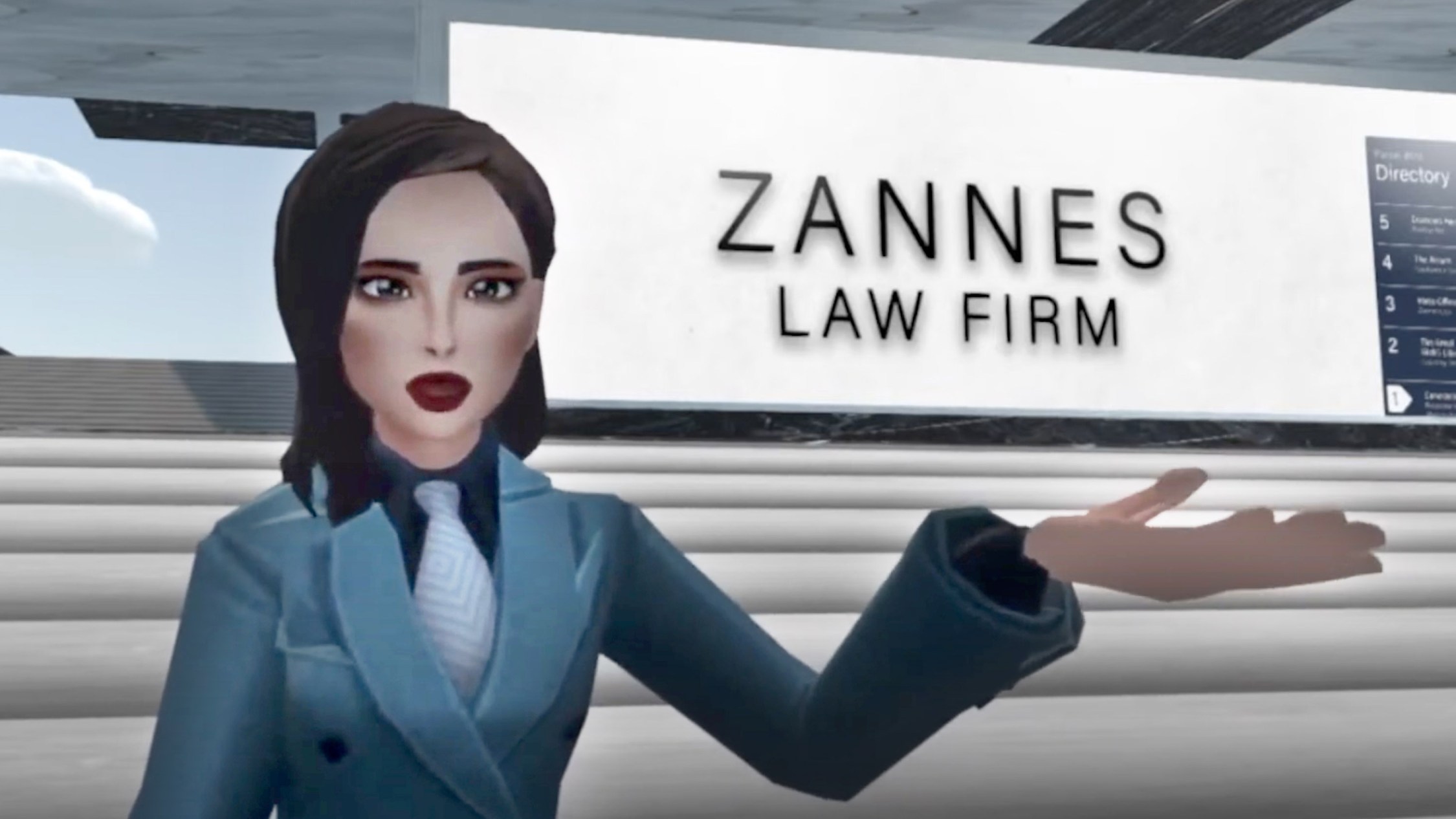
Excerpt:
Lot #651 on Somnium Space belongs to Zannes Law, a Toronto-based law firm. In this seven-level metaverse office, principal lawyer Madaline Zannes conducts private consultations with clients, meets people wandering in with legal questions, hosts conferences, and gives guest lectures. Zannes says that her metaverse office allows for a more immersive, imaginative client experience. She hired a custom metaverse builder to create the space from scratch—with breakout rooms, presentation stages, offices to rent, an art gallery, and a rooftop bar.
A Literal Generative AI Discussion: How AI Could Reshape Law — from geeklawblog.com by Greg Lambert
Excerpt:
Greg spoke with an AI guest named Justis for this episode. Justis, powered by OpenAI’s GPT-4, was able to have a natural conversation with Greg and provide insightful perspectives on the use of generative AI in the legal industry, specifically in law firms.
In the first part of their discussion, Justis gave an overview of the legal industry’s interest in and uncertainty around adopting generative AI. While many law firm leaders recognize its potential, some are unsure of how it fits into legal work or worry about risks. Justis pointed to examples of firms exploring AI and said letting lawyers experiment with the tools could help identify use cases.
Robots aren’t representing us in court but here are 7 legal tech startups transforming the legal system — from tech.eu by Cate Lawrence
Legal tech startups are stepping up to the bar, using tech such as AI, teleoperations, and apps to bring justice to more people than ever before. This increases efficiency, reduces delays, and lowers costs, expanding legal access.
Putting Humans First: Solving Real-Life Problems With Legal Innovation — from abovethelaw.com by Olga Mack
Placing the end-user at the heart of the process allows innovators to identify pain points and create solutions that directly address the unique needs and challenges individuals and businesses face.
Pilot projects using AI in legal world produce mixed results, but still promising: legal tech panel — from canadianlawyermag.com by Zena Olijnyk
Canadian Legal Tech Summit attendees hear of challenges, benefits of AI as ‘hype’ continues to grow
Excerpt:
A pilot project designed to test the potential of artificial intelligence tools at McCarthy Tétrault LLP showed that certain types of applications for the legal profession seemed to work better than others, panellists told attendees to the recent Canadian Lawyer Legal Tech Summit.
“I would say that the results were mixed,” David Cohen, senior director of client service delivery for the firm. During the panel, moderated by University of Calgary assistant professor Gideon Christian, Cohen spoke about a pilot of about 40 lawyers from different practices at the firm who used an AI platform with only public data.
The group [testing the platform] said it needs to get better before we start using this for research,” he said. However, he said, when it came to tasks like generating documents, reviewing 100-page cases “and summarizing and analyzing them,” the AI platforms did much better.
What are the top legal technology trends in 2023? — from legalitprofessionals.com
Excerpt:
To help with this, our Client Success Team have summarised the eight key legal technology trends in the market, as well as the themes discussed at recent legal technology events and conferences including the British Legal Technology Forum and iManage ConnectLive Virtual 2023, both of which we were proud to sponsor.
On a somewhat related note, also see:
Designing the Law Office of the Future — from workdesign.com by Deborah Nemeth
Deborah Nemeth of SmithGroup shares how inspiration from higher education and hospitality can help inform the next evolution of the law office.
101 creative ideas to use AI in education, A crowdsourced collection — from zenodo.org by Chrissi Nerantzi, Sandra Abegglen, Marianna Karatsiori, & Antonio Martínez-Arboleda (Eds.); with thanks to George Veletsianos for this resource
As an example, here’s one of the ideas from the crowdsourced collection:
On a somewhat related note, also see:
Merlyn Mind launches education-focused LLMs for classroom integration of generative AI — from venturebeat.com by Victor Dey
Excerpt:
Merlyn Mind, an AI-powered digital assistant platform, announced the launch of a suite of large language models (LLMs) specifically tailored for the education sector under an open-source license.
Designing courses in an age of AI — from teachinginhighered.com by Maria Andersen
Maria Andersen shares about designing courses in an age of artificial intelligence (AI) on episode 469 of the Teaching in Higher Ed podcast.
With generative AI, we have an incredible acceleration of change happening.
Maria Andersen
The economic potential of generative AI — from mckinsey.com; via Superhuman
.
DC: It should prove to be interesting & fun to watch how #AI and #XR related technologies will be integrated into games & the #gamification of #learning .https://t.co/HO2CftqNrs via @VRScout
— Daniel Christian (he/him/his) (@dchristian5) June 23, 2023
.
On giving AI eyes and ears — from oneusefulthing.org by Ethan Mollick
AI can listen and see, with bigger implications than we might realize.
Excerpt:
But even this is just the beginning, and new modes of using AI are appearing, which further increases their capabilities. I want to show you some examples of this emerging world, which I think will soon introduce a new wave of AI use cases, and accompanying disruption.
We need to recognize that these capabilities will continue to grow, and AI will be able to play a more active role in the real world by observing and listening. The implications are likely to be profound, and we should start thinking through both the huge benefits and major concerns today.
Ethan Mollick
5 Steps to Transforming Images into Videos Using AI Tools — from heatherbcooper.substack.com by Heather Cooper
A simple guide to layering AI tools for quick video creation
.
‘Nobody wins in an academic-integrity arms race’ — from chonicle.com by Ian Wilhelm
How artificial intelligence is changing the way college thing about cheating
Even though generative AI is a new thing, it doesn’t change why students cheat. They’ve always cheated for the same reason: They don’t find the work meaningful, and they don’t think they can achieve it to their satisfaction. So we need to design assessments that students find meaning in.
Tricia Bertram Gallant
Caught off guard by AI — from chonicle.com by Beth McMurtrie and Beckie Supiano
Professor scrambled to react to ChatGPT this spring — and started planning for the fall
Excerpt:
Is it cheating to use AI to brainstorm, or should that distinction be reserved for writing that you pretend is yours? Should AI be banned from the classroom, or is that irresponsible, given how quickly it is seeping into everyday life? Should a student caught cheating with AI be punished because they passed work off as their own, or given a second chance, especially if different professors have different rules and students aren’t always sure what use is appropriate?
GPT-4 Can Use Tools Now—That’s a Big Deal — from every.to by Dan Shipper; resource via Sam DeBrule
What “function calling” is, how it works, and what it means
Excerpt:
…OpenAI built tool use right into the GPT API with an update called function calling. It’s a little like a child’s ability to ask their parents to help them with a task that they know they can’t do on their own. Except in this case, instead of parents, GPT can call out to external code, databases, or other APIs when it needs to.
Each function in function calling represents a tool that a GPT model can use when necessary, and GPT gets to decide which ones it wants to use and when. This instantly upgrades GPT capabilities—not because it can now do every task perfectly—but because it now knows how to ask for what it wants and get it.
.
.
How ChatGPT can help disrupt assessment overload — from timeshighereducation.com by David Carless
Advances in AI are not necessarily the enemy – in fact, they should prompt long overdue consideration of assessment types and frequency, says David Carless
Excerpt:
Reducing the assessment burden could support trust in students as individuals wanting to produce worthwhile, original work. Indeed, students can be co-opted as partners in designing their own assessment tasks, so they can produce something meaningful to them.
A strategic reduction in quantity of assessment would also facilitate a refocusing of assessment priorities on deep understanding more than just performance and carries potential to enhance feedback processes.
If we were to tackle assessment overload in these ways, it opens up various possibilities. Most significantly there is potential to revitalise feedback so that it becomes a core part of a learning cycle rather than an adjunct at its end. End-of-semester, product-oriented feedback, which comes after grades have already been awarded, fails to encourage the iterative loops and spirals typical of productive learning.
.
.
The full 12 uses are here: https://edgeoflearning.com/your-new-teaching-superpower-ai-tools/
The AI Tools in Education Database — from kiwi-path-612.notion.site by EdTech Insiders
Excerpt (emphasis DSC):
Since AI in education has been moving at the speed of light, we built this AI Tools in Education database to keep track of the most recent AI tools in education and the changes that are happening every day. This database is intended to be a community resource for educators, researchers, students, and other edtech specialists looking to stay up to date. This is a living document, so be sure to come back for regular updates.
.
.
Time for Class 2023 Study finds students are earlier adopters of generative AI tools than faculty, and majority (69%) of learners prefer hybrid, blended or online course formats — from globenewswire.com by Tyton Partners
.
AI Could Prevent Hiring Bias — Unless It Makes It Worse — from nerdwallet.com by Anna Helhoski
Advocates say AI can eliminate human biases in hiring. Skeptics point out that AI tools are trained by … humans.
Excerpt:
These claims conjure up the rosiest of images: human resource departments and their robot buddies solving discrimination in workplace hiring. It seems plausible, in theory, that AI could root out unconscious bias, but a growing body of research shows the opposite may be more likely.
…
Companies’ use of AI didn’t come out of nowhere: For example, automated applicant tracking systems have been used in hiring for decades. That means if you’ve applied for a job, your resume and cover letter were likely scanned by an automated system. You probably heard from a chatbot at some point in the process. Your interview might have been automatically scheduled and later even assessed by AI.
From DSC:
Here was my reflection on this:
DC: Along these lines, I wonder if Applicant Tracking Systems cause us to become like typecast actors and actresses — only thought of for certain roles. Pigeonholed.
— Daniel Christian (he/him/his) (@dchristian5) June 23, 2023
Also related to AI in hiring, see:
4 in 10 Companies Will Be Using AI Interviews by 2024 — from resumebuilder.com
In June, ResumeBuilder.com surveyed more than 1,000 employees who are involved in hiring processes at their workplaces to find out about their companies’ use of AI interviews.
The results:
- 43% of companies already have or plan to adopt AI interviews by 2024
- Two-thirds of this group believe AI interviews will increase hiring efficiency
- 15% say that AI will be used to make decisions on candidates without any human input
- More than half believe AI will eventually replace human hiring managers
Watch OpenAI CEO Sam Altman on the Future of AI — from bloomberg.com
Sam Altman, CEO & Co-Founder, OpenAI discusses the explosive rise of OpenAI and its products and what an AI-laced future can look like with Bloomberg’s Emily Chang at the Bloomberg Technology Summit.
.
PowerSchool Announces Collaboration with Microsoft Azure OpenAI Service to Provide Personalized Learning at Scale in K-12 Education — from powerschool.com
Large-scale language models integrated within PowerSchool Performance Matters and PowerSchool LearningNav products will empower educators in delivering transformative personalized learning pathways
The implementation of generative AI within these products will dramatically improve educators’ ability to deliver personalized learning to students at scale by enabling the application of personalized assessments and learning pathways based on individual student needs and learning goals. K-12 educators will also benefit from access to OpenAI technology…
.
FETC 2023 Virtual Roundtable: How AI Will Transform K-12 Education
AI could be the great equalizer!
Holly Clark
Example screenshots:
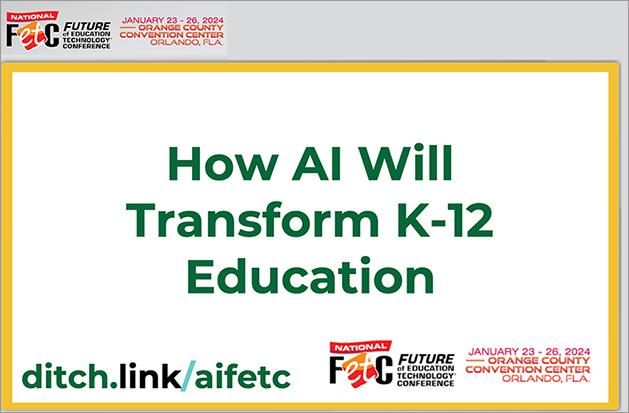
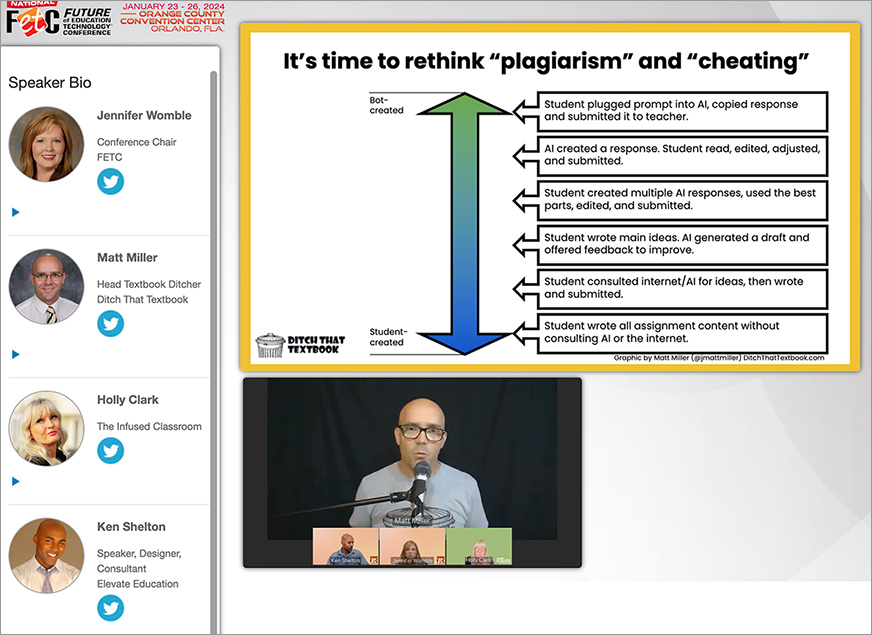
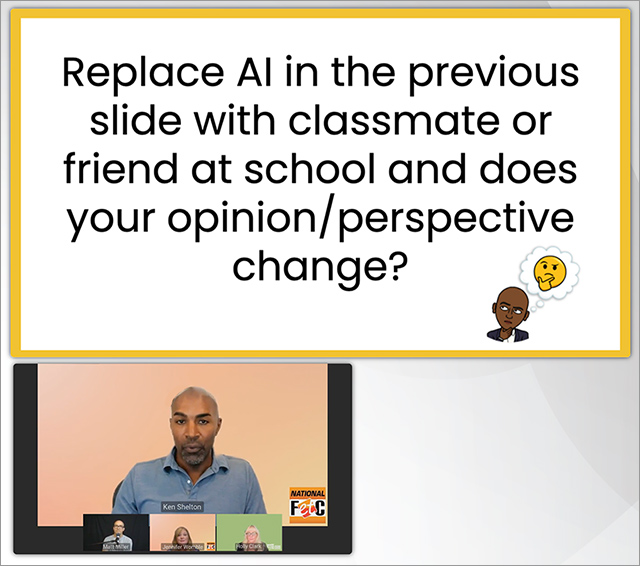
The Cambrian Explosion of AI Edtech Is Here — from edtechinsiders.substack.com by Alex Sarlin, Sarah Morin, and Ben Kornell
Excerpt:
Our AI in Edtech Takeaways
After chronicling 160+ AI tools (which is surely only a small fraction of the total), we’re seeing a few clear patterns among the tools that have come out so far- here are 10 categories that are jumping out!
- Virtual Teaching Assistants:
- Virtual Tutors:
- AI-Powered Study Tools:
- Educational Content Creation:
- Educational Search:
- Auto-generated Learning Paths:
- AI-Powered Research:
- Speak to Characters:
- Grammar and Writing:
- AI Cheating Detection:
Excerpt:
“I don’t usually get worked up about announcements but I see promise in JFF’s plans for a new Center for Artificial Intelligence & the Future of Work, in no small part because the organization bridges higher ed, K-12 education, employers, and policymakers.”
Goldie Blumenstyk
Goldie’s article links to:
Jobs for the Future Launches New Center for Artificial Intelligence & the Future of Work — from archive.jff.org
Center launches as JFF releases preliminary survey data which finds a majority of workers feel they need new skills and training to prepare for AI’s future impact.
Excerpt:
BOSTON June 14, 2023 —Jobs for the Future (JFF), a national nonprofit that drives transformation in the U.S. education and workforce systems, today announced the launch of its new Center for Artificial Intelligence &the Future of Work. This center will play an integral role in JFF’s mission and newly announced 10-year North Star goal to help 75 million people facing systemic barriers to advancement work in quality jobs. As AI’s explosive growth reshapes every aspect of how we learn, work, and live, this new center will serve as a nexus of collaboration among stakeholders from every part of the education-to-career ecosystem to explore the most promising opportunities—and profound challenges—of AI’s potential to advance an accessible and equitable future of learning and work.
OpenAI Considers ‘App Store’ For ChatGPT — from searchenginejournal.com by; with thanks to Barsee at AI Valley for this resource
OpenAI explores launching an ‘app store’ for AI models, potentially challenging current partners and expanding customer reach.
Highlights:
- OpenAI considers launching an ‘app store’ for customized AI chatbots.
- This move could create competition with current partners and extend OpenAI’s customer reach.
- Early interest from companies like Aquant and Khan Academy shows potential, but product development and market positioning challenges remain.
The Rise of AI: New Rules for Super T Professionals and Next Steps for EdLeaders — from gettingsmart.com by Tom Vander Ark
Key Points
- The rise of artificial intelligence, especially generative AI, boosts productivity in content creation–text, code, images and increasingly video.
- Here are six preliminary conclusions about the nature of work and learning.
Wonder Tools: AI to try — from wondertools.substack.com by Jeremy Caplan
9 playful little ways to explore AI
Excerpt:
- Create a personalized children’s story ? | Schrodi
Collaborate with AI on a free customized, illustrated story for someone special. Give your story’s hero a name, pick a genre (e.g. comedy, thriller), choose an illustration style (e.g. watercolor, 3d animation) and provide a prompt to shape a simple story. You can even suggest a moral. After a minute, download a full-color PDF to share. Or print it and read your new mini picture book aloud. - Generate a quiz ? | Piggy
Put in a link, a topic, or some text and you’ll get a quiz you can share, featuring multiple-choice or true-false questions. Example: try this quick entrepreneurship quiz Piggy generated for me.
3 Questions for Coursera About Generative AI in Education — from insidehighered.com by Joshua Kim
How this tech will change the learning experience, course creation and more.
Excerpt (emphasis DSC):
Q: How will generative AI impact teaching and learning in the near and long term?
Baker Stein: One-on-one tutoring at scale is finally being unlocked for learners around the world. This type of quality education is no longer only available to students with the means to hire a private tutor. I’m also particularly excited to see how educators make use of generative AI tools to create courses much faster and likely at a higher quality with increased personalization for each student or even by experimenting with new technologies like extended reality. Professors will be able to put their time toward high-impact activities like mentoring, researching and office hours instead of tedious course-creation tasks. This helps open up the capacity for educators to iterate on their courses faster to keep pace with industry and global changes that may impact their field of study.
Another important use case is how generative AI can serve as a great equalizer for students when it comes to writing, especially second language learners.
As AI Spreads, Experts Predict the Best and Worst Changes in Digital Life by 2035 — from pewresearch.org by Janna Anderson and Lee Rainie
They have deep concerns about people’s and society’s overall well-being. But they also expect great benefits in health care, scientific advances and education
Table of Contents
- A sampling of overarching views on digital change
- Expert essays on the expected impact of digital change by 2035
- Themes: The most harmful or menacing changes in digital life that are likely by 2035
- Themes: The best and most beneficial changes in digital life that are likely by 2035
- Closing thoughts on ChatGPT and other steps in the evolution of humans, digital tools and systems by 2035About this canvassing of experts
We Might Finally Get AI That “Remembers” Us — from theneurondaily.com by Noah Edelman & Pete Huang

Excerpt:
Why it matters: The best AI assistants will be the ones that require the least prompting. They’ll get to know who you are, what you need, and your modus operandi. Profiles are a good starting point, but we believe the game-changer will be larger context windows (that’s nerd-speak for the amount of context ChatGPT can handle).
.
From DSC:
And how about taking this a step further and remembering — or being able to access — our constantly updated Cloud-Based Learning Profiles?
AI-driven Legal Apprenticeships — from thebrainyacts.beehiiv.com by Josh Kubicki
Excerpts:
My hypothesis and research suggest that as bar associations and the ABA begin to recognize the on-going systemic issues of high-cost legal education, growing legal deserts (where no lawyer serves a given population), on-going and pervasive access to justice issues, and a public that is already weary of the legal system – alternative options that are already in play might become more supported.
What might that look like?
The combination of AI-assisted education with traditional legal apprenticeships has the potential to create a rich, flexible, and engaging learning environment. Here are three scenarios that might illustrate what such a combination could look like:
-
- Scenario One – Personalized Curriculum Development
- Scenario Two – On-Demand Tutoring and Mentoring
- Scenario Three – AI-assisted Peer Networks and Collaborative Learning:
Why Companies Are Vastly Underprepared For The Risks Posed By AI — from forbes.com by
Accuracy, bias, security, culture, and trust are some of the risks involved
Excerpt:
We know that there are challenges – a threat to human jobs, the potential implications for cyber security and data theft, or perhaps even an existential threat to humanity as a whole. But we certainly don’t yet have a full understanding of all of the implications. In fact, a World Economic Forum report recently stated that organizations “may currently underappreciate AI-related risks,” with just four percent of leaders considering the risk level to be “significant.”
A survey carried out by analysts Baker McKenzie concluded that many C-level leaders are over-confident in their assessments of organizational preparedness in relation to AI. In particular, it exposed concerns about the potential implications of biased data when used to make HR decisions.
AI & lawyer training: How law firms can embrace hybrid learning & development — thomsonreuters.com
A big part of law firms’ successful adaptation to the increased use of ChatGPT and other forms of generative AI, may depend upon how firmly they embrace online learning & development tools designed for hybrid work environments
Excerpt:
As law firms move forward in using of advanced artificial intelligence such as ChatGPT and other forms of generative AI, their success may hinge upon how they approach lawyer training and development and what tools they enlist for the process.
One of the tools that some law firms use to deliver a new, multi-modal learning environment is an online, video-based learning platform, Hotshot, that delivers more than 250 on-demand courses on corporate, litigation, and business skills.
Ian Nelson, co-founder of Hotshot, says he has seen a dramatic change in how law firms are approaching learning & development (L&D) in the decade or so that Hotshot has been active. He believes the biggest change is that 10 years ago, firms hadn’t yet embraced the need to focus on training and development.
From DSC:
Heads up law schools. Are you seeing/hearing this!?
- Are we moving more towards a lifelong learning model within law schools?
- If not, shouldn’t we be doing that?
- Are LLM programs expanding quickly enough? Is more needed?
Legal tech and innovation: 3 ways AI supports the evolution of legal ops — from lexology.com
Excerpts:
- Simplified legal spend analysis
- Faster contract review
- Streamlined document management
Holograms Are Coming To California State Parks — from vrscout.com by Kyle Melnick
AR Technology Is Invading The Kitchen — from vrscout.com by Kyle Melnick
Excerpt (emphasis DSC):
Could this immersive AR experience revolutionize the culinary arts?
Earlier this month, the popular culinary livestreaming network Kittch announced that it is partnering with American technology company Qualcomm to create hands-free cooking experiences accessible via AR glasses.
Apple Vision Pro, Higher Education and the Next 10 Years — from insidehighered.com by Joshua Kim
How this technology will play out in our world over the next decade.
Accenture announces jaw-dropping $3 billion investment in AI — from venturebeat.com by Carl Franzen; via Superhuman
Excerpt:
The generative AI announcements are coming fast and furious these days, but among the biggest in terms of sheer dollar commitments just landed: Accenture, the global professional services and consulting giant, today announced it will invest $3 billion (with a “b”!) in AI over the next three years in building out its team of AI professionals and AI-focused solutions for its clients.
“There is unprecedented interest in all areas of AI, and the substantial investment we are making in our Data & AI practice will help our clients move from interest to action to value, and in a responsible way with clear business cases,” said Julie Sweet, Accenture’s chairwoman and CEO.
Also related/see:
Artificial intelligence creates 40,000 new roles at Accenture — from computerweekly.com by Karl Flinders
Accenture is planning to add thousands of AI experts to its workforce as part of a $3bn investment in its data and artificial intelligence practice
Why leaders need to evolve alongside generative AI — from fastcompany.com by Kelsey Behringer
Even if you’re not an educator, you should not be sitting on the sidelines watching the generative AI conversation being had around you—hop in.
Excerpts (emphasis DSC):
Leaders should be careful to watch and support education right now. At the end of the day, the students sitting in K-12 and college classrooms are going to be future CPAs, lawyers, writers, and teachers. If you are parenting a child, you have skin in the game. If you use professional services, you have skin in the game. When it comes to education, we all have skin in the game.
…
Students need to master fundamental skills like editing, questioning, researching, and verifying claims before they can use generative AI exceptionally well.
GenAI & Education: Enhancement, not Replacement — from drphilippahardman.substack.com by Dr. Philipa Hardman
How to co-exist in the age of automation
Excerpts (emphasis DSC):
[On 6/15/23, I joined] colleagues from OpenAI, Google, Microsoft, Stanford, Harvard and other others at the first meeting of the GenAI Summit. Our shared goal [was] to help to educate universities & schools in Europe about the impact of Generative AI on their work.
…how can we effectively communicate to education professionals that generative AI will enhance their work rather than replace them?
A recent controlled study found that ChatGPT can help professionals increase their efficiency in routine tasks by ~35%. If we keep in mind that the productivity gains brought by the steam engine in the nineteenth century was ~25%, this is huge.
As educators, we should embrace the power of ChatGPT to automate the repetitive tasks which we’ve been distracted by for decades. Lesson planning, content creation, assessment design, grading and feedback – generative AI can help us to do all of these things faster than ever before, freeing us up to focus on where we bring most value for our students.
Google, one of AI’s biggest backers, warns own staff about chatbots — from reuters.com by Jeffrey Dastin and Anna Tong
Excerpt:
SAN FRANCISCO, June 15 (Reuters) – Alphabet Inc (GOOGL.O) is cautioning employees about how they use chatbots, including its own Bard, at the same time as it markets the program around the world, four people familiar with the matter told Reuters.
The Google parent has advised employees not to enter its confidential materials into AI chatbots, the people said and the company confirmed, citing long-standing policy on safeguarding information.
The economic potential of generative AI: The next productivity frontier — from mckinsey.com
Generative AI’s impact on productivity could add trillions of dollars in value to the global economy—and the era is just beginning.
Preparing for the Classrooms and Workplaces of the Future: Generative AI in edX — from campustechnology.com by Mary Grush
A Q&A with Anant Agarwal
Adobe Firefly for the Enterprise — Dream Bigger with Adobe Firefly.
Dream it, type it, see it with Firefly, our creative generative AI engine. Now in Photoshop (beta), Illustrator, Adobe Express, and on the web.
Apple Vision Pro, Higher Education and the Next 10 Years — from insidehighered.com by Joshua Kim
How this technology will play out in our world over the next decade.
Zoom can now give you AI summaries of the meetings you’ve missed — from theverge.com by Emma Roth
Mercedes-Benz Is Adding ChatGPT to Cars for AI Voice Commands — from decrypt.co by Jason Nelson; via Superhuman
The luxury automaker is set to integrate OpenAI’s ChatGPT chatbot into its Mercedes-Benz User Experience (MBUX) feature in the U.S.
Apple’s $3,499 Vision Pro AR headset is finally here — from techcrunch.com by Brian Heater
Image Credits: Apple
Excerpts:
“With Vision Pro, you’re no longer limited by a display,” Apple CEO Tim Cook said, introducing the new headset at WWDC 2023. Unlike earlier mixed reality reports, the system is far more focused on augmented reality than virtual. The company refresh to this new paradigm is “spatial computing.”
Reflections from Scott Belsky re: the Vision Pro — from implications.com
Apple WWDC 2023: Everything announced from the Apple Vision Pro to iOS 17, MacBook Air and more — from techcrunch.com by Christine Hall
Apple unveils new tech — from therundown.ai (The Rundown)
Here were the biggest things announced:
- A 15” Macbook Air, now the thinnest 15’ laptop available
- The new Mac Pro workstation, presumably a billion dollars
- M2 Ultra, Apple’s new super chip
- NameDrop, an AirDrop-integrated data-sharing feature allowing users to share contact info just by bringing their phones together
- Journal, an ML-powered personalized journalling app
- Standby, turning your iPhone into a nightstand alarm clock
- A new, AI-powered update to autocorrect (finally)
- Apple Vision Pro
Apple announces AR/VR headset called Vision Pro — from joinsuperhuman.ai by Zain Kahn
Excerpt:
“This is the first Apple product you look through and not at.” – Tim Cook
And with those famous words, Apple announced a new era of consumer tech.
Apple’s new headset will operate on VisionOS – its new operating system – and will work with existing iOS and iPad apps. The new OS is created specifically for spatial computing — the blend of digital content into real space.
Vision Pro is controlled through hand gestures, eye movements and your voice (parts of it assisted by AI). You can use apps, change their size, capture photos and videos and more.
From DSC:
Time will tell what happens with this new operating system and with this type of platform. I’m impressed with the engineering — as Apple wants me to be — but I doubt that this will become mainstream for quite some time yet. Also, I wonder what Steve Jobs would think of this…? Would he say that people would be willing to wear this headset (for long? at all?)? What about Jony Ive?
I’m sure the offered experiences will be excellent. But I won’t be buying one, as it’s waaaaaaaaay too expensive.









